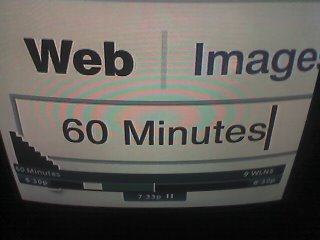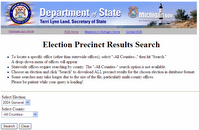On the hottest day of 2006, a July day with the heat index well above 100, I participated in a film shoot. This was a political commercial produced by a good friend, one of the leading makers of commercials in Michigan, Doug Monson. For over a year I'd asked Doug to let me tag along on a video shoot. I've dabbled in video production for years and wanted to see a pro do it.

Doug upped the ante: he cast me, and other friends, in the commercial. The pitch was in favor of Michigan Prop 4, which amends the Michigan constitution to place severe limits on the ability of government to take property from one private party (e.g. a homeowner) and transfer it to another private party (e.g. a strip mall developer) in the name of "economic development." I play the reluctant bad guy, who has to tell the aging homeowners that the state is taking their homestead away from them to build a strip mall.
It was an amazing eye-opener for me to see how much work goes into a quality 30 second spot. Doug worked with
Such Video, a Lansing area video production company. They had 10 or 12 production workers on site. It was the making of a small movie -- very specialized, the sound guy, the lighting guy, the cinematographer, the production coordinator --and Doug directing.
We did take after take after take, all in 100 degree heat. No one needed a pee break despite consuming hundreds of bottles of water.
Doug shoots on film, even though the editing is digital. He insists the quality of film remains superior, even though he has to have it developed in the one lab in Michigan that still processes film.
You can
download and view the finished commercial.
You can also see
still photos depicting the making of a 30 second campaign ad.
How will I vote on Prop 4? Frankly, I'm not sure. Most newspaper editorials in Michigan say we don't need to amend the state constitution, as the most recent state Supreme Court decision makes it hard for government to abuse eminent domain. I guess I lead towards voting for the proposal, knowing how governments across the country have abused the notion of "blight" to take perfectly fine, albeit older, homes and neighborhoods to serve the tax base.
In particular, I believe that the city of East Lansing has never admitted that John Hannah brought over 40,000 students to town. The city and its homeowner tax base (and voter base) remain in a 40 year state of denial. Starting circa 1967, East Lansing should have encouraged smallish, mixed-use student apartment/retail complexes around town, instead of creating the ghetto of delapidated 40s homes and new duplexes, with a nod and a wink to illegal rentals.

